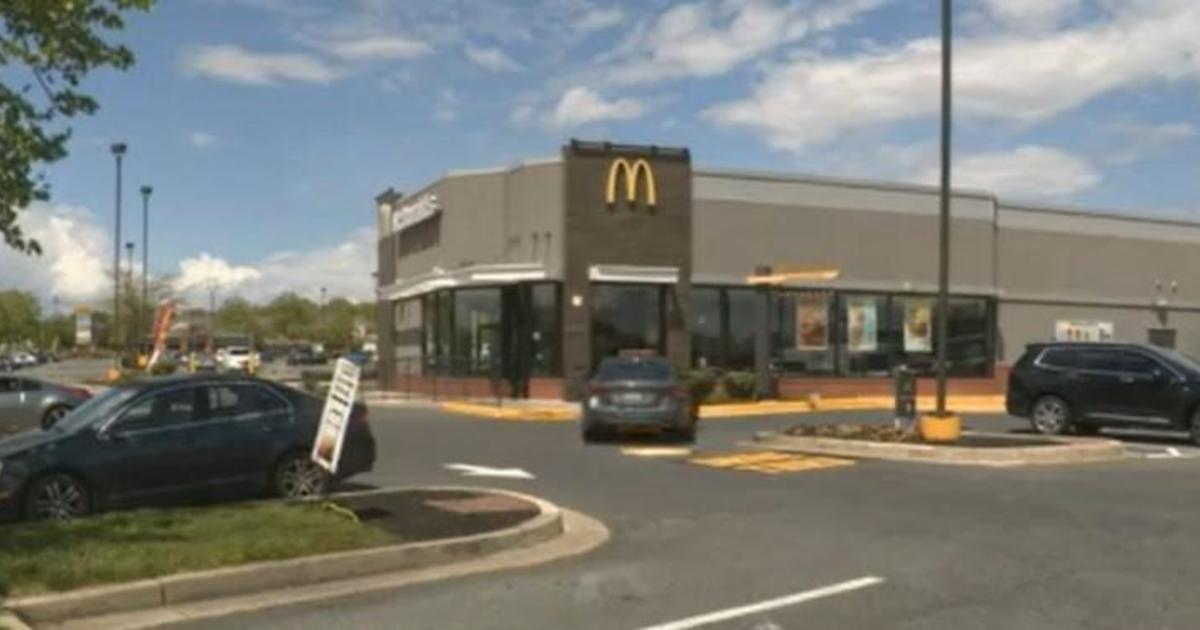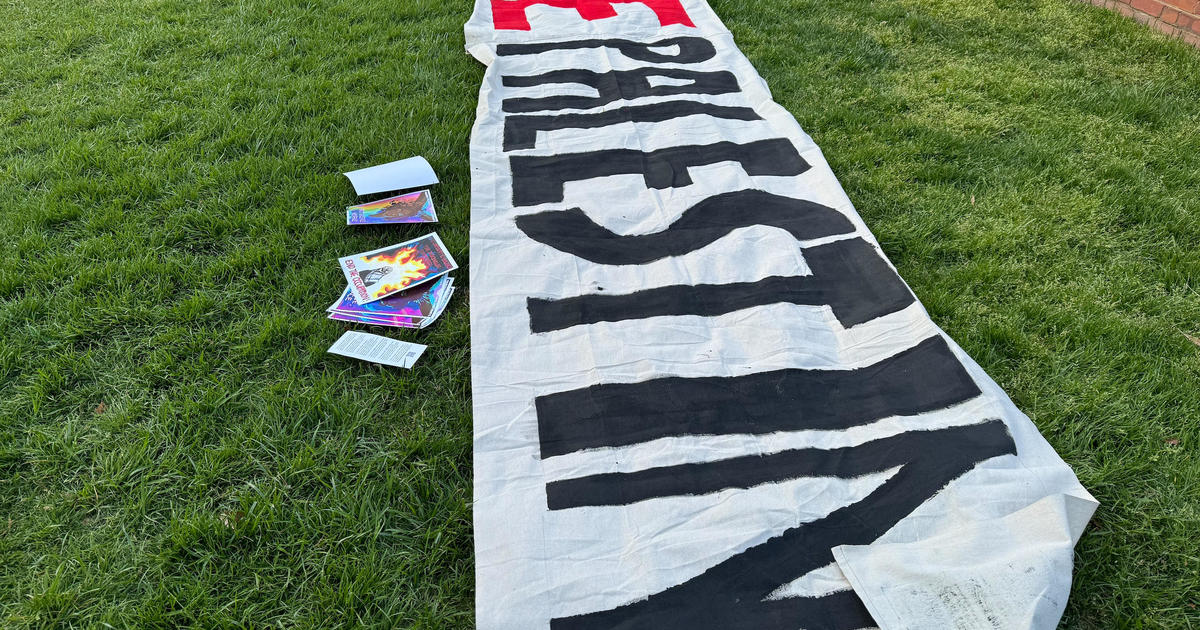From 9 To 85: Junior Drag Racer Lights Up The Speedway
By ATALIE DAY BROWN
The Capital of Annapolis
PASADENA, Md. (AP) -- Sitting in his modified 1967 cherry-red Camaro, Josh Phelps grips the steering wheel of with apprehension during the first practice run of the day at Capitol Raceway in Crofton last Saturday.
As the 19-year-old from Pasadena waits his turn, a long line of thundering, souped-up cars forms around him. Quietly standing beside the vintage muscle car is the car's previous owner, and Phelps' self-described "No. 1 fan," his father, Brian Phelps. After a brief chat and a shared fist bump, Phelps pulls up to the starting line under his father's watchful eye.
Almost every weekend, the Phelpses can be found racing the vintage Chevy on a nearby track. This family pastime started when Josh Phelps was just 9 years old.
Over the years, the hobby has become a true bonding experience for both father and son. For Josh Phelps, winning a race always takes second place to spending time with his father.
"I like being at the track with my dad," he says, adding, "When it's time to work on something in the car, he teaches me everything."
According to Jim Bradshaw, the track operator at Capitol Raceway, "A family that races together stays together."
Bradshaw attests to this creed by saying that he and his three sons have been frequenting the racetrack for years. He met the Phelpses as a customer of Capitol, but a few years ago, he was hired as a raceway employee.
Since becoming the track operator, Bradshaw has attempted to create a family-friendly atmosphere. "I want it to be (about) family," says Bradshaw. He points to a part of the track and says, "This whole section here is all for family."
When Bradshaw met the Phelps family, Josh Phelps was competing in the junior dragster division.
"He's been coming here for many years," says Bradshaw. When Phelps was a senior in high school, he asked Bradshaw if he could work at the track -- unpaid -- for a school project. "He wanted to work for free, and I thought, `Wow,"' says Bradshaw. "He's a good boy."
A 2014 graduate of Annapolis Area Christian School, Phelps is currently working full time at a motorcycle performance shop and attending Anne Arundel Community College. In the near future, he plans to pursue a degree in mechanical engineering.
When Phelps started in the junior dragster division at age 9, he was racing a smaller version of a car known as a Top Fuel racer. This type of car is shaped like a doorstop, with the vehicle's rear being much wider than its front. During his junior dragster career, Phelps racked up winnings that totaled nearly $20,000, which more than paid for his car.
Junior dragsters are capable of reaching speeds up to 85 mph. Brian Phelps says he did not fear for his son's safety during races because the cars have a variety of safety features. Each junior racer is required to wear a helmet, neck brace, fire-resistant suit and shoes, and the car must also have a roll bar.
After aging out of the junior dragster division, the younger Phelps entered a different class of racing, called "no electronics," using his `67 Camaro. The no-electronics class is just that -- cars with no computers or other electronics of any kind. Although it is only his first year competing in this class, Phelps has already won about $3,200.
"He's a great racer," says 19-year-old David Saunders, of Woodbridge, Virginia. Saunders and Phelps met 11 years ago when they were junior dragsters and have been best friends ever since.
Brian Phelps believes that this hobby has kept his son and his friends from getting into trouble. Racing "keeps them occupied and off the streets," he said. He also says they are learning confidence, sportsmanship and a lot of patience. Most of the time spent at the track is downtime, as drivers wait for the next opportunity to speed down the 660-foot track.
To pass the time, Josh Phelps waits with his friends inside his family's air-conditioned Winnebago. "It's only five passes a day for about six seconds," his father says.
The winner of this type of drag racing is typically "whoever gets to the finish line first and closest to their dial-in," Josh Phelps says. The dial-in number is an educated estimate of the time the driver believes it will take for his car to reach the finish line. If the driver believes he will finish the race in 7.56 seconds, the closer he is to this number, the better. "It's like `The Price Is Right," said Phelps' friend and fellow racer Corey Maloney, of Pasadena. Phelps typically finishes each race in about 6.5 seconds.
Following the two practice runs last on a recent Saturday was a competition in which the winner took home a $3,000 purse. Phelps was able to make it to the fifth round, out of eight, and won $180 -- adding a little bit more to what he says has been a successful year.
(Copyright 2015 by The Associated Press. All Rights Reserved.)



